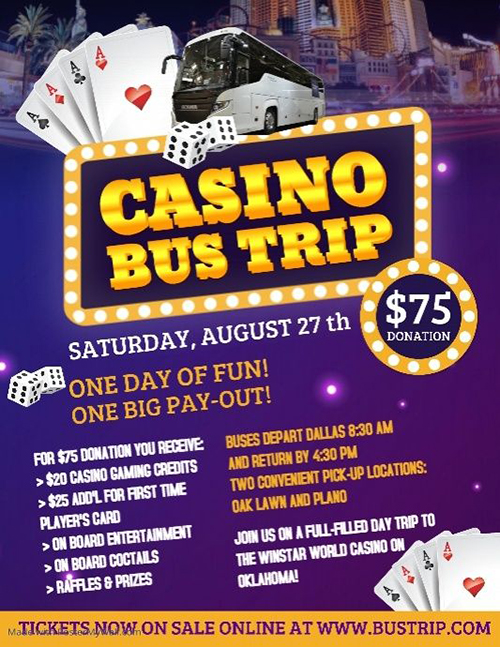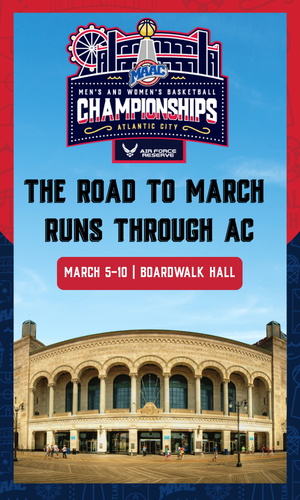By Bruce Klauber
There was a time when thousands of visitors poured into Atlantic City casinos 365 days a year. They ate, they gambled, they enjoyed a show and they traveled to Atlantic City from Philadelphia, Staten Island, Toms River and from states as far away as Rhode Island and Connecticut. At sundown, most of them returned home.
They came to Atlantic City by bus and many were senior citizens. They were called “bus people,” “day trippers” and several other things, but the casinos were always crowded. Many of the gambling houses built bus stations and garages to expedite arrivals and departures. Newspapers and magazines did stories about the phenomenon, which lasted roughly from 1980 until the early 2000s, when more and more states legalized gambling.
While the city was happy about the number of visitors and the good revenues they brought in, there were concerns. Because those who came by bus only stayed only for a day, the casinos weren’t booking a lot of hotel rooms. And the daytime visitors rarely visited retailers outside of the casinos. Nonetheless, the bus people continued to pour in, until they found other and closer places to gamble.
Many of the deals in those days were simply too good to pass up. In addition to a round-trip bus ticket, packages often included a $10 roll of quarters, coupons and vouchers for buffet lunches, free matinee show tickets and other perks. Some folks made the visits a weekly ritual, and some came every day.
Rosemarie Mason worked at Caesars in the slot department.
“We had 200 buses a day,” Mason said. “People could hardly walk the aisles. People ate their bag lunches and left their trash between the machines, and there were fights over slot machines. I should write a book of what I saw.”

Christine Russ was a “bus greeter” at what was once called Bally’s Park Place.
“I met many older patrons that would come down almost every day. They would eat with the buffet coupon and cash in their voucher for the $10. We had the ‘Bus Plus Club’ that gave them extra money. They would sit in the lobby or take walks on the boardwalk. For many, the cash vouchers paid for the monthly groceries.” Russ said trips gave the seniors a chance to make new friends and gave them something to do during the day.
“I remember you would have vouchers and you ran to the cashier cage to redeem them before the line got too long,” said Rory Frickman, who worked in one of the casinos during that period. “Casinos were making a lot of money back then and the only competition was the other casinos in Atlantic City. So each casino would try to give you just a little better deal to get you to come to their venue in hopes you would spend your money with them.”
Some of the frequent visitors learned quickly how to work the system of quarters, vouchers and coupons.
“Egg Harbor Township High School would run bus trips to Atlantic City as a fundraiser,” one visitor recalled. “We would take the bus from the high school to a casino and get our ticket for quarters and lunch. When we were done eating, my husband would pick us up and we would go home. We had to pay $10, but we got that back plus a meal.”
Gus Dramis lived in Brigantine during the bus days.
“I had an aunt from Philadelphia who would take the bus down to Atlantic City and get her quarters,” Dramis said. “I would pick her up for lunch with me, take her back to the bus and she would go home.”
“My brother in law would take that bus when he wanted to spend a day with us, ” recalled shore resident Bill Povse. “Retired people would come down two and three times a week. They would get a free lunch and $10 each in quarters, which was easy money for those on Social Security.”
As an added incentive, some of the casinos had afternoon matinee shows for the day trippers. The Playboy, later the Atlantis, frequently presented Frank Sinatra Jr., as well as the versatile comic, Charlie Prose. And in those days the vast majority of the casinos presented lounge entertainment all day long.
In May of 1984, the Trump Plaza opened on the boardwalk. I was a member of one of the first bands booked to play in the Plaza’s lounge. We started at the ungodly hour of 11:30 a.m., but because the casino was brand new, and bus programs at Trump Plaza hadn’t yet been instituted, the lounge was usually empty. But we played anyway.
It’s important to remember that before gambling was legalized in other states, Atlantic City, for many years, was the only game in town. In October of 1982, The New York Times reported that there was so much interest in the “day trip to Atlantic City” concept, that people all over the country were interested in spending a few hours playing the slots at the Queen of Resorts.
“Day trippers, the casino-bound visitors who arrive in the morning and then head home at night, are not limited to automobiles and buses,” wrote The Times.
Before the casino era, if 500 charter flight passengers arrived at Atlantic City International Airport in nearby Pomona, it would have been considered a banner year. The total for 1982 is expected to surpass a half-million passengers or about 300,000 more than in 1981.
“They fly in daily from all parts of the United States, Canada and Mexico, and often South America, on some 40 airlines, including widely known carriers such as Ozark, United and Air Canada. Donald B. Freeborn, the airport administrator, estimated that considerably more than 90 percent of the arrivals were day trippers.
“All nine casinos are involved in the charter operations, many with their own leased aircraft. Two, Resorts International and Bally’s, operate 50-passenger de Havilland DHC-7s to Bader Field. The airborne day trippers combine with bus and private-car passengers to make Atlantic City a veritable daily turnstile for visitors. Altogether, the number of visitors by plane, bus and private car for 1982 could reach an unprecedented 85 million, according to most estimates.”
These days, there’s no shortage of bus service – from virtually anywhere – to Atlantic City, and from time to time, one-day trip packages are offered as a special event for promotions or fundraisers. But there are no regularly-scheduled package deals, no free buffet coupons, no afternoon entertainment, no casino bus terminals, no giveaways and no gratis rolls of quarters.
Today, with an exception here and there, it’s just a bus ride. But the good news is that more and more visitors are staying in Atlantic City for far longer than a day and are taking advantage of all that the city has to offer. That’s a pretty good tradeoff, even without a free meal and a roll of quarters.
Bruce Klauber is the author of four books, an award-winning music journalist, concert and record producer and publicist, producer of the Warner Brothers and Hudson Music “Jazz Legends” film series, and performs both as a drummer and vocalist.











